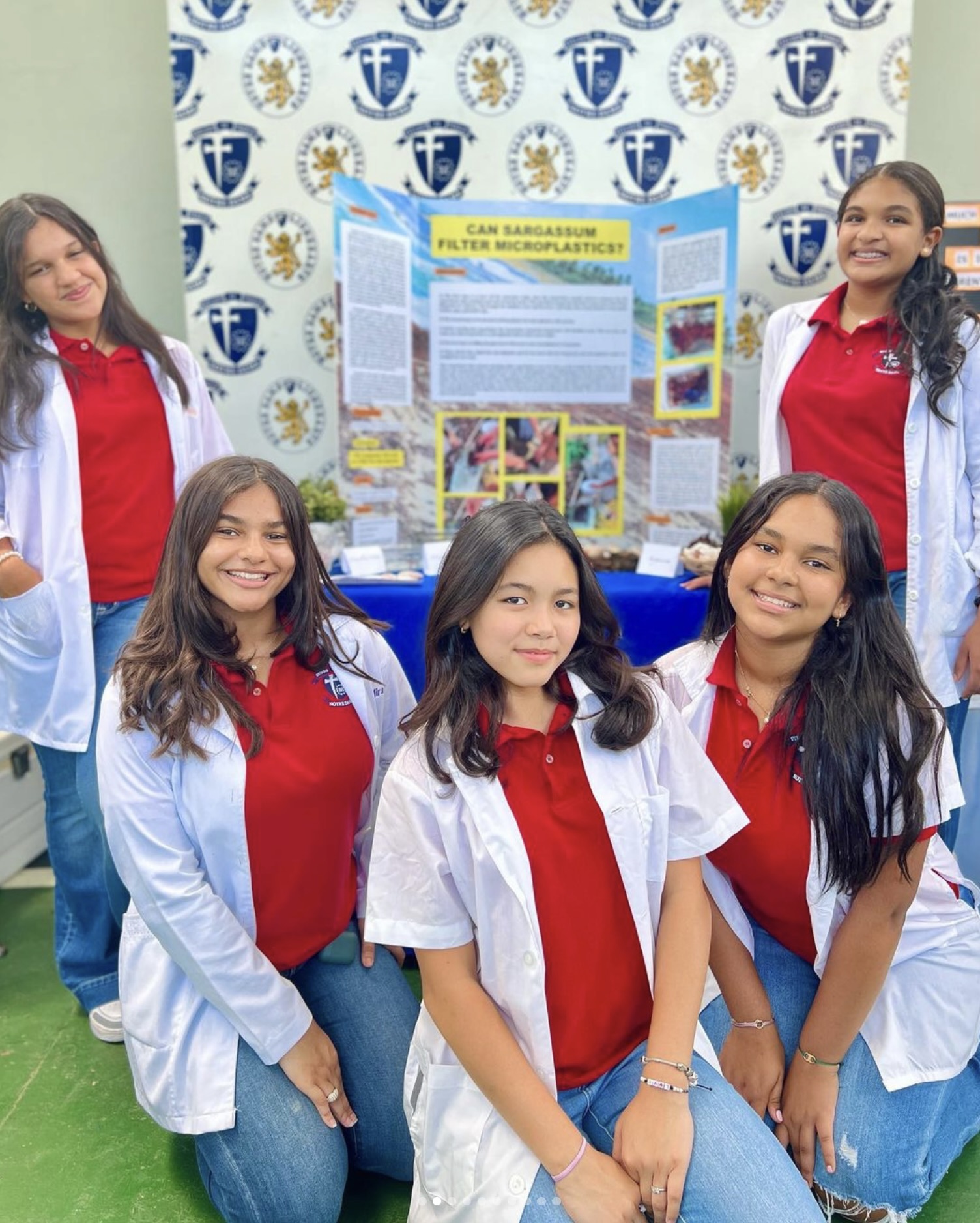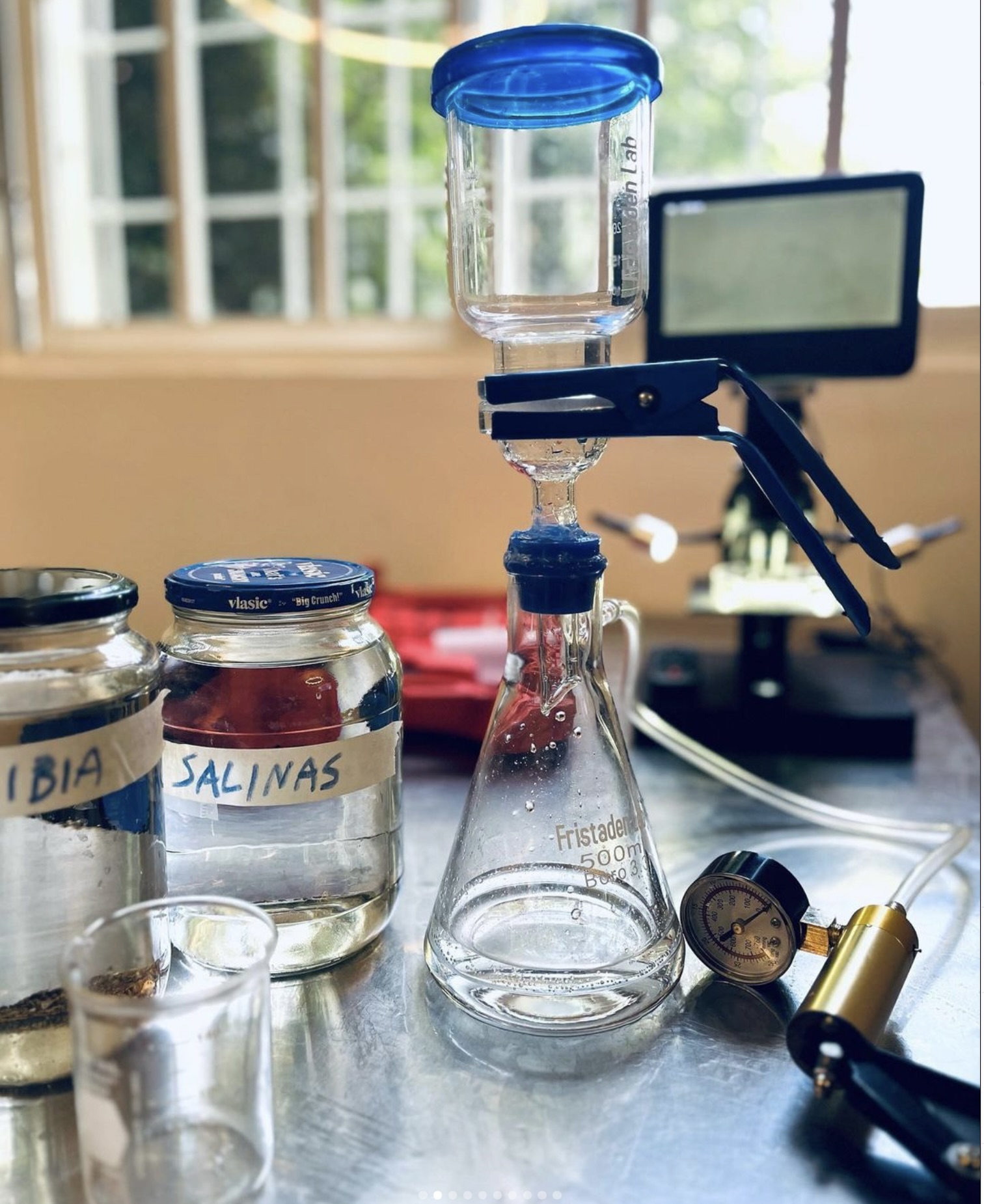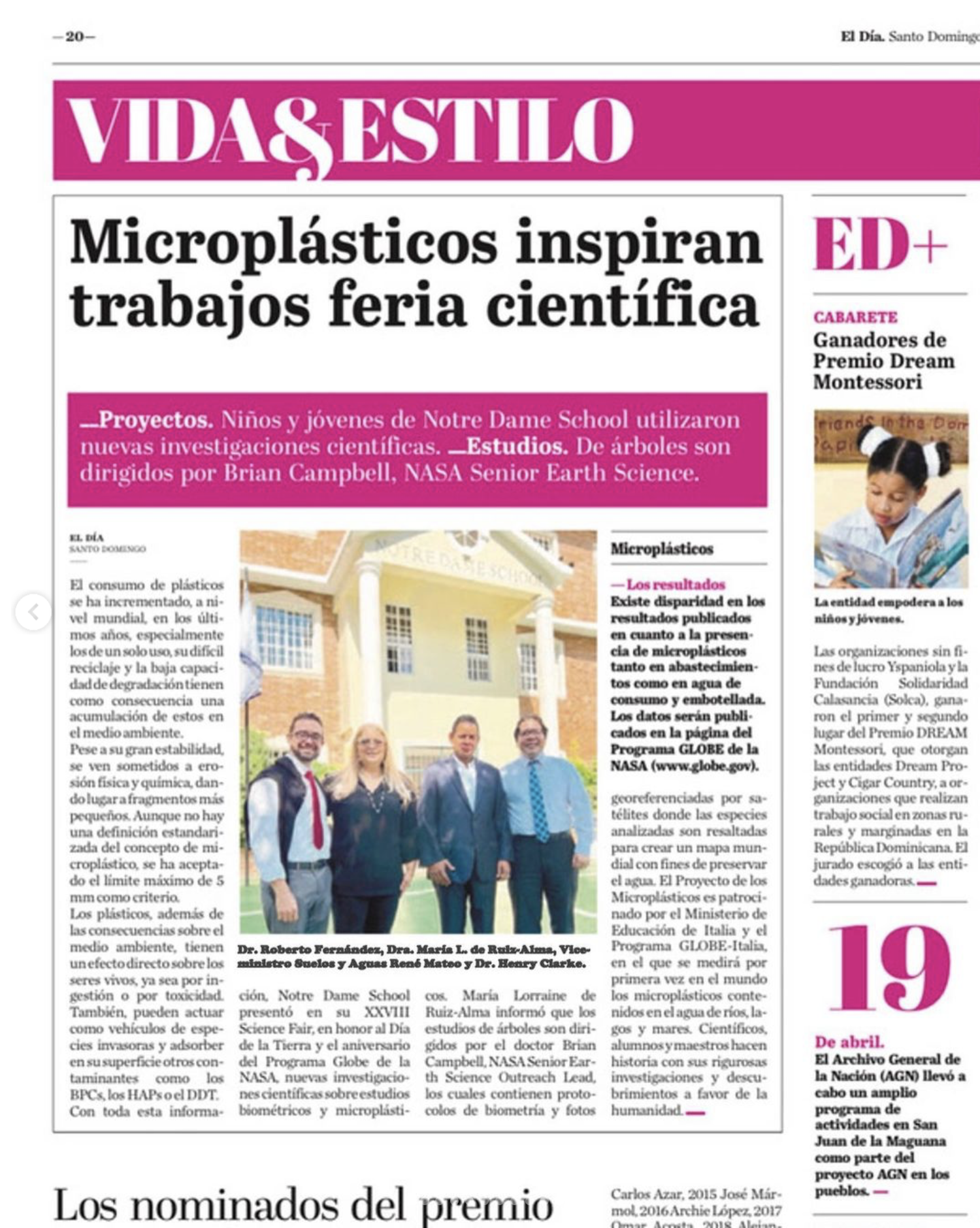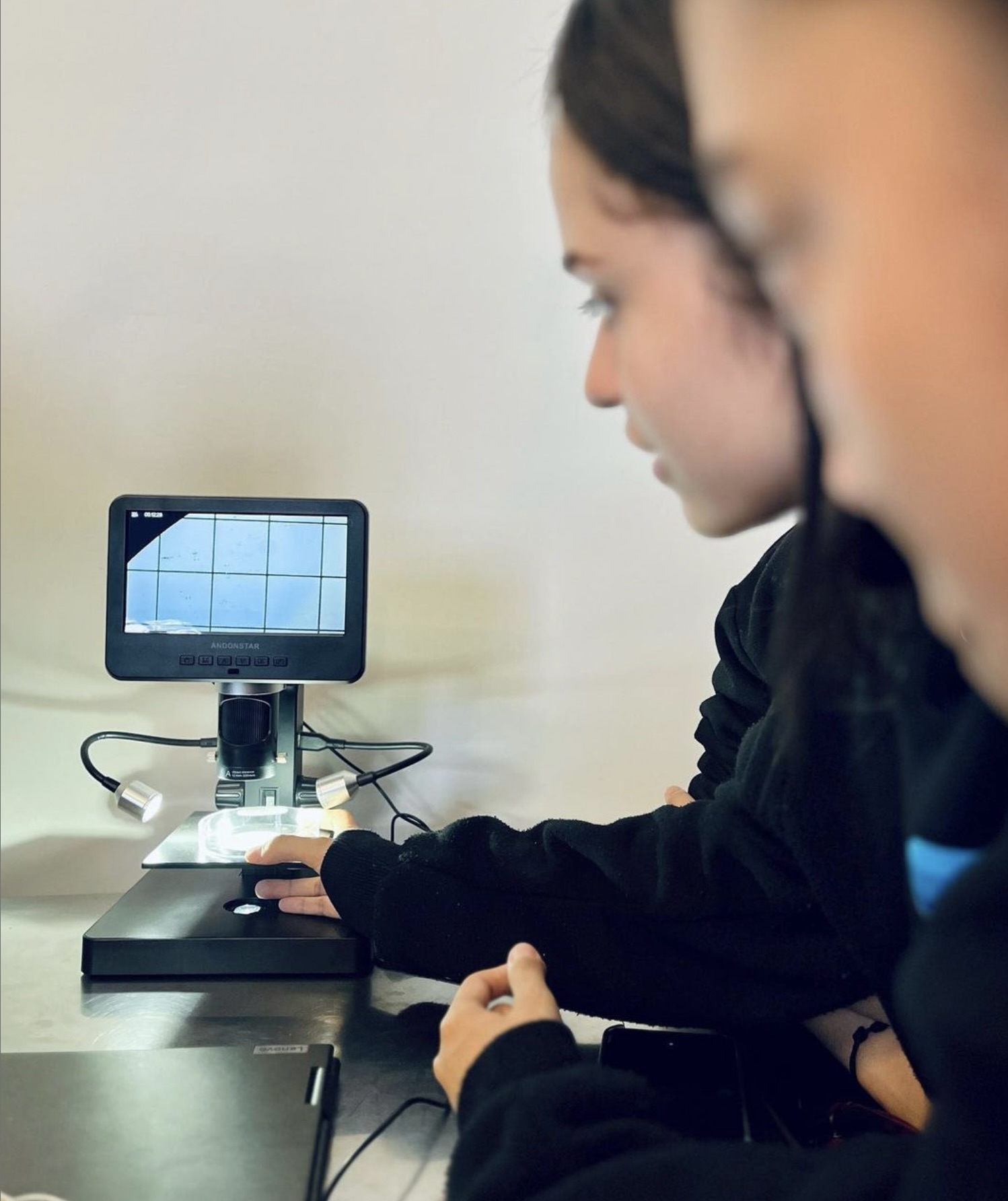Stars and STEM Stories
GLOBE Students Voices Reached the Dominican Senate

Aiming for more significant audiences outside of the classroom and with the courage from knowing they are walking the right path, GLOBE students from Santo Domingo, Dominican Republic started a campaign of Zero Plastics to reduce the carbon print and global warming that inspired the Dominican Senate to allow only biodegradable plastics in the country. It all started using GLOBE protocols as evidence of the changes in the city through the years in temperature, urban heat, aerosols, high surface temperature, soil and river pollution, among other parameters.

A group of students visited the Dominican Senate where they learned how it works; exposed their concerns about the environment seating in the Senate chamber desks; met senators Honorable Faride Raful, Ivan Lorenzo (a GLOBE parent) and the president of the High Chamber, Honorable Eduardo Estrella.
Nevertheless, the campaign needed more data that impact those citizens who believe they can go on with the status quo and not be affected; this is when the Microplastics Protocol, developed by GLOBE Italy and presented at the 2022 GLOBE Annual Conference, became the focus.
Teachers were trained on the protocol by scientists Alessandra Sutti and Stuart Robottom (Deakin University, Australia) before all high school students at Notre Dame (school, Domincan Republic) knew how to use the new equipment. Students started to find topics for their Science Projects with Microplastics as the central theme to create awareness in their community or to give possible solutions for local problems.
Among the projects presented were: Microplastics in your coffee; Which toothpaste brand has fewer microplastics?; Microplastics in Delivery Food; Which Kitchen plastic tools release fewer microplastics?; Microplastics in Güibia, Salinas, Punta Cana and Cabarete Beaches; Can Sargassum filter microplastics?; Microplastics in the Ozama and Isabella rivers; and others.

The Science Fair attracted the media and the local authorities, knowing it was the first time plastics were measured with an international scientific protocol in the country. The event was honored by Rene Mateo (Vice Minister in Soils and Water from the Ministry of Environment), local scientists, educators, and famous journalists from newspapers and magazines. The prestigious Dominican newspaper, El Día (left), published an article about the GLOBE Science Fair on Microplastics featuring Vice-Minister of Soil and Water René Mateo, teacher Roberto Fernández, GLOBE Program Country Coordinator Dr. María Ruiz-Alma, and Deputy Country Coordinator Dr. Henry Clarke.
Finally, the two best projects were presented to Latin American countries at the GLOBE Latin America and Caribbean (LAC) Virtual Science Fair on 31 May 2023, creating additional momentum for the topic -- especially for the local authorities.

Finally, the fantastic news arrived: on 6 June, the Senate of the Dominican Republic approved, in the second reading, a law (Law 2025-20) that will require, among other measures, that importing companies or manufacturers of plastics use a biodegradability certificate which must be issued by a laboratory accredited in the corresponding standard.
Our enthusiastic student voices positively impacted the lives of Dominican citizens and cooperated with the global community to build a better planet. “This is just the beginning; we will aim for higher goals next year. I want to become a senator and be the change in society.” Said Ivanna Lorenzo, a 10th-grade student and a GLOBE Program enthusiast.
Images courtesy María Lorraine de Ruiz-Alma, Country Coordinator, GLOBE Dominican Republic.





